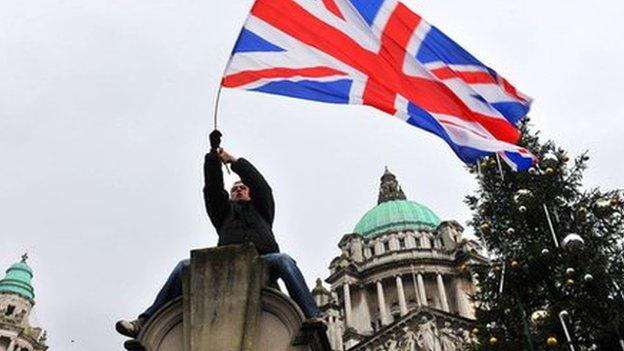NI talks: Politicians are given new document
- Published
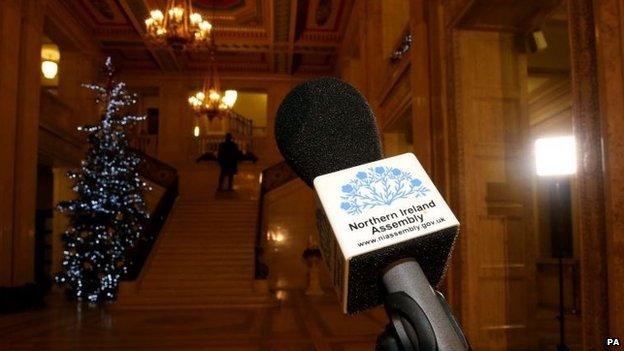
The talks have continued beyond the deadline set by the secretary of state
Northern Ireland politicians have been given a new document as they attempt to reach agreement in cross-party talks.
They had been awaiting the document from the Northern Ireland Secretary, Theresa Villiers.
It is understood the government has now increased its offer of financial assistance to £2bn, a mixture of loans and cash.
The talks on welfare reform, the past, flags and parades have lasted 11 weeks.
The BBC's Northern Ireland political editor, Mark Devenport, said it was expected that any agreement would focus mainly on financial issues, welfare reform and dealing with the legacy of the Troubles.
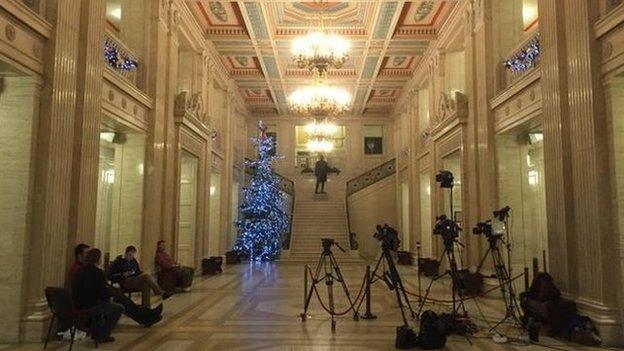
The media have gathered inside Stormont waiting for the outcome of the talks
Sinn Fein MP Conor Murphy confirmed on Tuesday the parties had received an improved offer but that they would take some time to assess it.
"The paper was received at 12pm, we have another round-table meeting now and we will continue to tease out the contents of the paper with both governments as the afternoon goes on," he said.
He said Sinn Féin's initial "encouraging" impression was that the financial package being offered had improved, "but we have to work out what is new money and what is recycled".
Overnight, it became clear that while the UK government had improved its financial offer, it was not keen to write off more than £200m in fines, imposed by the Treasury due to the delay in implementing welfare reform in Northern Ireland.
Point of contention
The five Northern Ireland executive parties and the UK and Irish governments have been involved in weeks of negotiations at Stormont Castle but the talks have intensified over the past few days.
A Stormont source has told the BBC that while the financial aspect of the talks might change marginally, the main point of contention appeared to be related to the legacy of the Troubles.
In particular, disagreements have continued over the remit of new agencies being created to deal with legacy issues.
There is also believed to be disagreement over whether outstanding inquests into contentious killings are held in court or subsumed into what will be known as the Historic Investigations Unit.
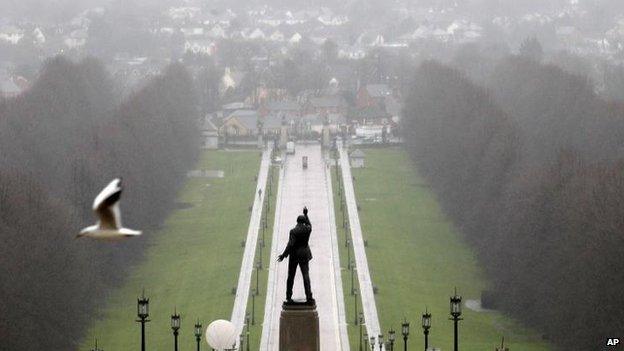
Alliance leader David Ford told the BBC: "It has been well reported that we have made significant progress around budget, especially welfare issues, although there may be one or two loose ends to tie up there.
"The key issue that we really have to do something about is dealing with the past, to provide some comfort to victims who have waited for so long for something to be agreed, and to deal with the issues that are currently causing major problems for the justice system."
Elsewhere, the terms of a new financial package proposed by David Cameron have also been a focus of the talks.
'Real money'
Last week, the five executive parties asked the government for £2bn in loans and extra funding over a 10-year period. The government later made a £1.5bn offer.
First Minister Peter Robinson said he believed that there was "real money on the table" from Westminster, but Ulster Unionist leader Mike Nesbitt said: "I have to caution that most of that is loans."
Sinn Féin's Conor Murphy said progress had been made but the "devil was in the detail".
The Northern Ireland executive still owes more than £214m to the Treasury after Northern Ireland failed to implement welfare reforms passed by Westminster in February 2013.
The figure is the amount the benefits budget in Northern Ireland should have fallen by, if welfare reforms had been implemented.
The Northern Ireland executive parties want this written off and Stormont sources said this issue is still under discussion.
- Published22 December 2014
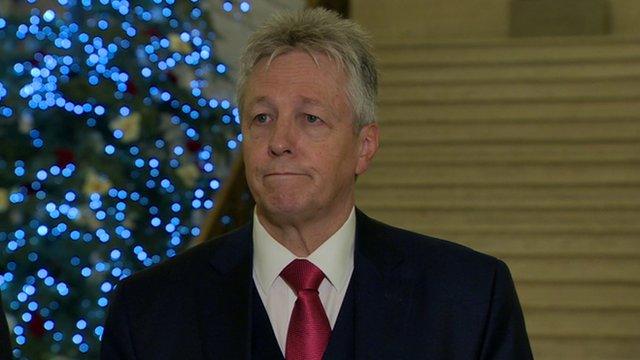
- Published21 December 2014
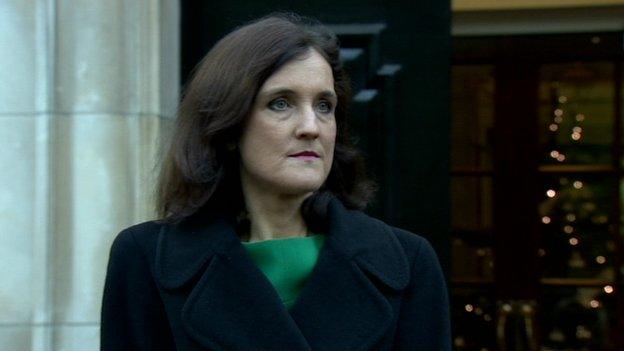
- Published20 December 2014
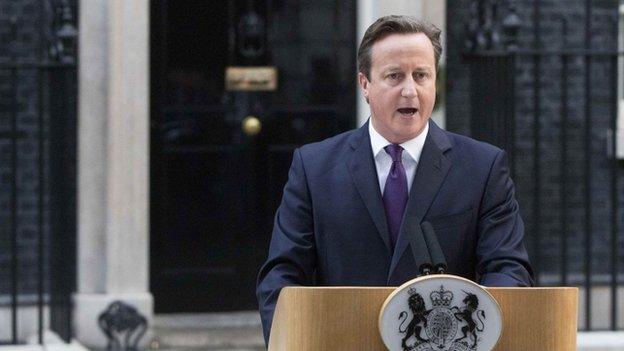
- Published12 December 2014
